Search
Search Results

Article
The Hellenistic World: The World of Alexander the Great
The Hellenistic World (from the Greek word Hellas for Greece) is the known world after the conquests of Alexander the Great and corresponds roughly with the Hellenistic Period of ancient Greece, from 323 BCE (Alexander's death) to the annexation...

Definition
Ancient Greece
Greece is a country in southeastern Europe, known in Greek as Hellas or Ellada, and consisting of a mainland and an archipelago of islands. Ancient Greece is the birthplace of Western philosophy (Socrates, Plato, and Aristotle), literature...
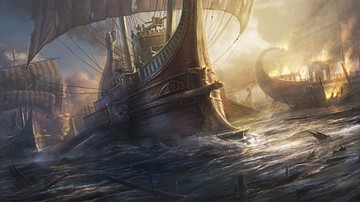
Definition
Lysander
Lysander (d. 395 BCE) was a Spartan statesman and general who famously defeated the Athenian navy at the Battle of Aigospotamoi in 405 BCE, which finally won the Peloponnesian War. Lysander gained a reputation for a fiery personality, daring...
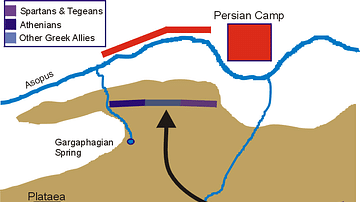
Definition
Battle of Plataea
The Battle of Plataea was a land battle between Greeks and Persians near the small town of Plataea in Boeotia in 479 BCE. Following up their naval victory at the Battle of Salamis in September 480 BCE against the same enemy, the Greeks again...
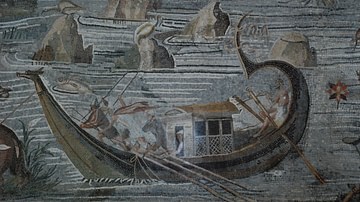
Definition
Ptolemaic Navy
Ptolemaic Egypt was a naval power that exerted influence throughout the Eastern Mediterranean from its foundation in 330 BCE until Cleopatra's defeat by Augustus at the Battle of Actium in 30 BCE. The Ptolemaic Kingdom produced some of the...
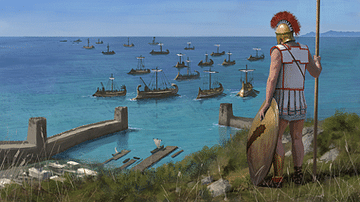
Image
Greek Warships
An artist's impression of what a fleet of Greek warships may have looked like.

Image
Greek Ship's Anchor
A stone anchor from a Greek sailing vessel, Piraeus. (Archaeological Museum, Piraeus)
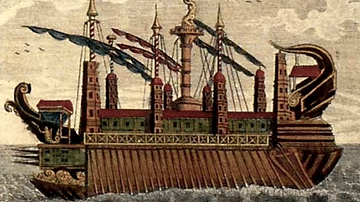
Definition
Syracusia
The Syracusia was an ancient sailing vessel designed by Archimedes in the 3rd century BCE. She was fabled as being one of the largest ships ever built in antiquity and as having a sumptuous decor of exotic woods and marble along with towers...
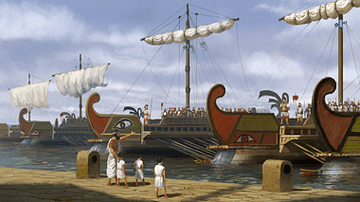
Image
Greek Harbour Scene
Artist's impression of how a harbour scene in ancient Greece may have looked.

Definition
Roman Literature
The Roman Empire and its predecessor the Roman Republic produced an abundance of celebrated literature; poetry, comedies, dramas, histories, and philosophical tracts; the Romans avoided tragedies. Much of it survives to this day. However...